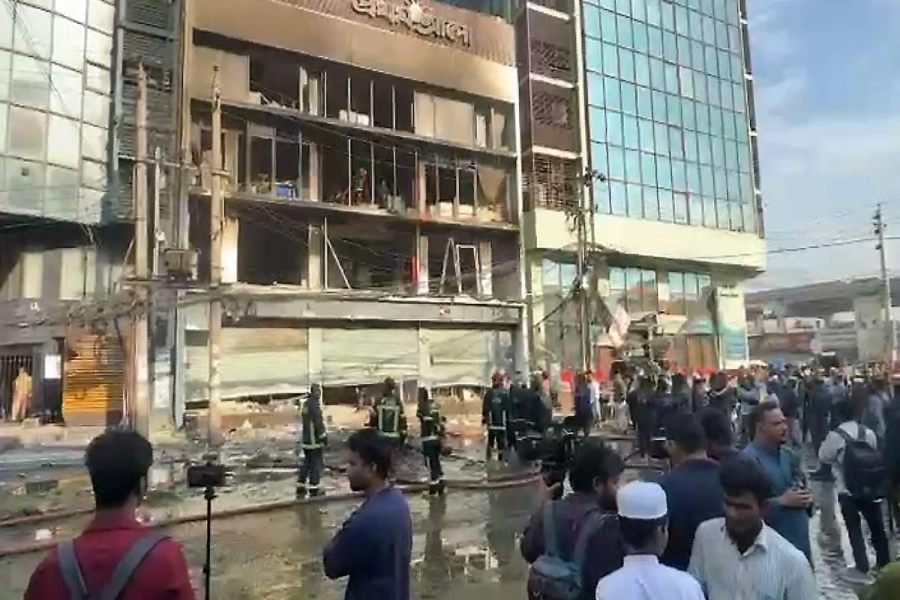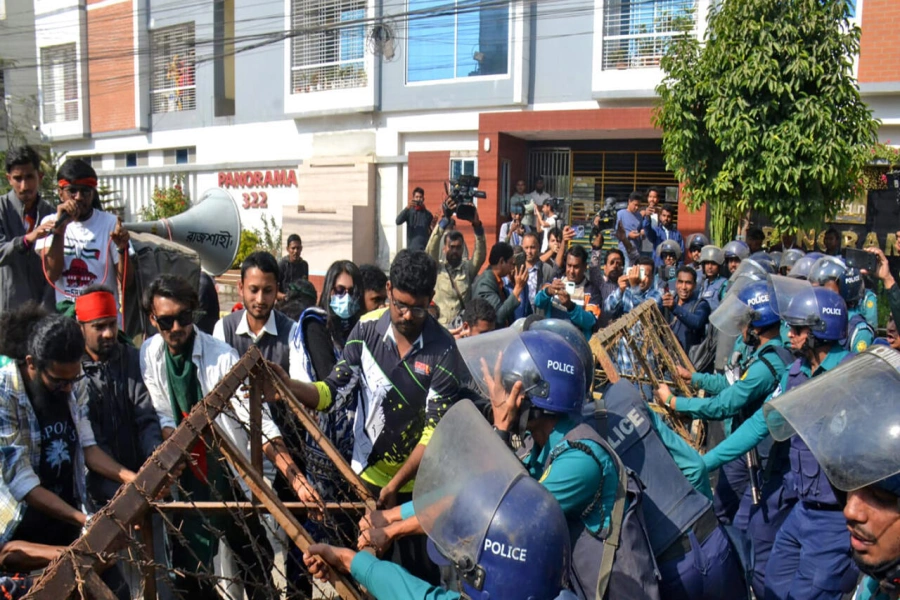KATHMANDU, Jan 27: The construction work of the Nagdhunga-Naubise Tunnel has come to a halt as a result of an acute shortage of construction materials, leaving Nepal with an additional financial liability of Rs 15 million a day. The ongoing construction work of the Nagdhunga-Naubise tunnel has stopped since January 15 due to the shortage of construction materials, including sand.
According to the agreement reached between the Nagdhunga-Naubise Tunnel Project and the Japanese contractor company, there is a provision to pay Rs 15 million in compensation to the construction company if the work of the tunnel is affected due to the project. As per the same provision, Nepal has to pay compensation to the Japanese construction company Hazama Ando Corporation at the rate of 1 5 million rupees per day.
In 11 days, the project is already supposed to pay Rs 165 million in compensation to the contractor company. Deputy Project Director of the Nagdhunga Tunnel Construction Project Madhav Prasad Adhikari said that the construction company had said it could make a claim of Rs 15 million daily since the construction is affected due to the shortage of construction materials. "In the contract itself, there is a provision to pay damages of 15 million rupees per day if the work of the project is affected because of Nepal," he said, “There is no certainty as to when the shortage of building materials will be addressed. If this situation continues, the country will have to incur a huge loss.”
The Ministry of Home Affairs wrote a letter to all 77 district administration offices on January 4, instructing them to close all illegal crusher plants. The construction of other infrastructure including the tunnel project has come to a standstill with the closure of the crusher plants across the country.
Lack of workers and construction materials affect work at Chili...

According to the Ministry of Home Affairs, around 890 illegal crusher plants have been shut down following the directives. Deputy Project Director Adhikari said nothing has been achieved even as they ensured coordination with the District Administration Offices of Kathmandu and Dhading twice in a period of 11 days.
"All agencies are aware of the fact that the construction of the tunnel has been affected due to the lack of construction materials. But they have not been able to resume the construction,” he said, “It seems that the state's expenditure burden will increase due to the disruption in the project work.”
When the local movement stopped the construction work of the project for a week last month (April-May), the Japanese construction company claimed 90 million rupees for six days at a daily rate of 15 million rupees, and an extension of three months. Earlier, due to the obstruction of the locals and change in design of the tunnel because of a weak rock found in the evacuation tunnel (emergency tunnel) of the project under construction, the total cost of the project was increased to a total of 180 million rupees.
According to the monthly report published by the project on January 8, the overall physical progress of the project so far has been 47.90 percent and the overall financial progress has been 49.59 percent. Out of the 2,688 meters main tunnel to be dug, 1782 meters have been dug in that period as of January 8. The contractor company is now left to dig the remaining 920 meters of tunnel. This project is expected to be completed by April 26, 2023 as per the initial contract.
Due to the pending works including tunnel breakthrough and finishing of the project, the deadline has to be extended by more than one year after the stipulated time. The problem is likely to persist as there is no certainty as to how long it will take to complete the project due to the lack of construction materials. For this project, the first phase was extended by only 86 days. The deadline for this project is June 2023, but even by that time, there is a possibility that only the break-through work of the project tunnel will be completed.
As of January 8, a total of 851 meters of the main tunnel towards Kathmandu and 931 meters towards Dhading have been dug. Towards the evacuation tunnel, 2,046 meters have been dug. Out of which 1,098 meters have been dug towards Kathmandu and 947 meters towards Dhading. According to the project, only physical progress towards the main tunnel, evacuation tunnel, working audit and cross passage has been 73.30 percent. The floor slope of the tunnel was 957 meters. The project will cost around Rs 22.5 billion including 5/500 meters of road, two flyovers and tunnels and compensation towards Dhading and Kathmandu.
The Japanese government has agreed to provide a loan for 40 years at an interest rate of 0.01 percent to build the tunnel. The construction of this project will cost a total of Rs 22.5 billion with a loan of Rs 16.5 billion from the Japanese aid agency JICA (Japan International Cooperation Agency) and about Rs 6 billion from the Government of Nepal.



































